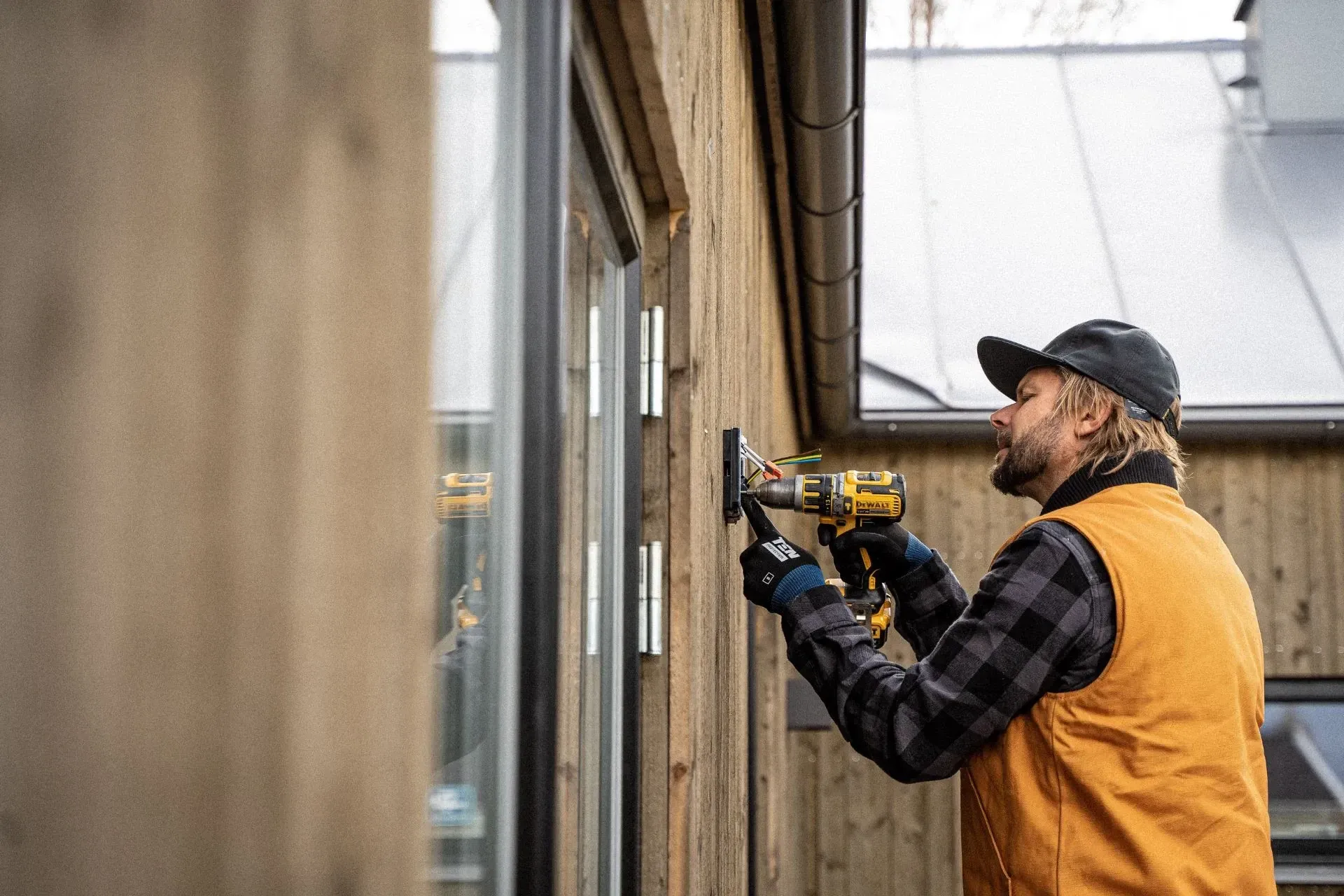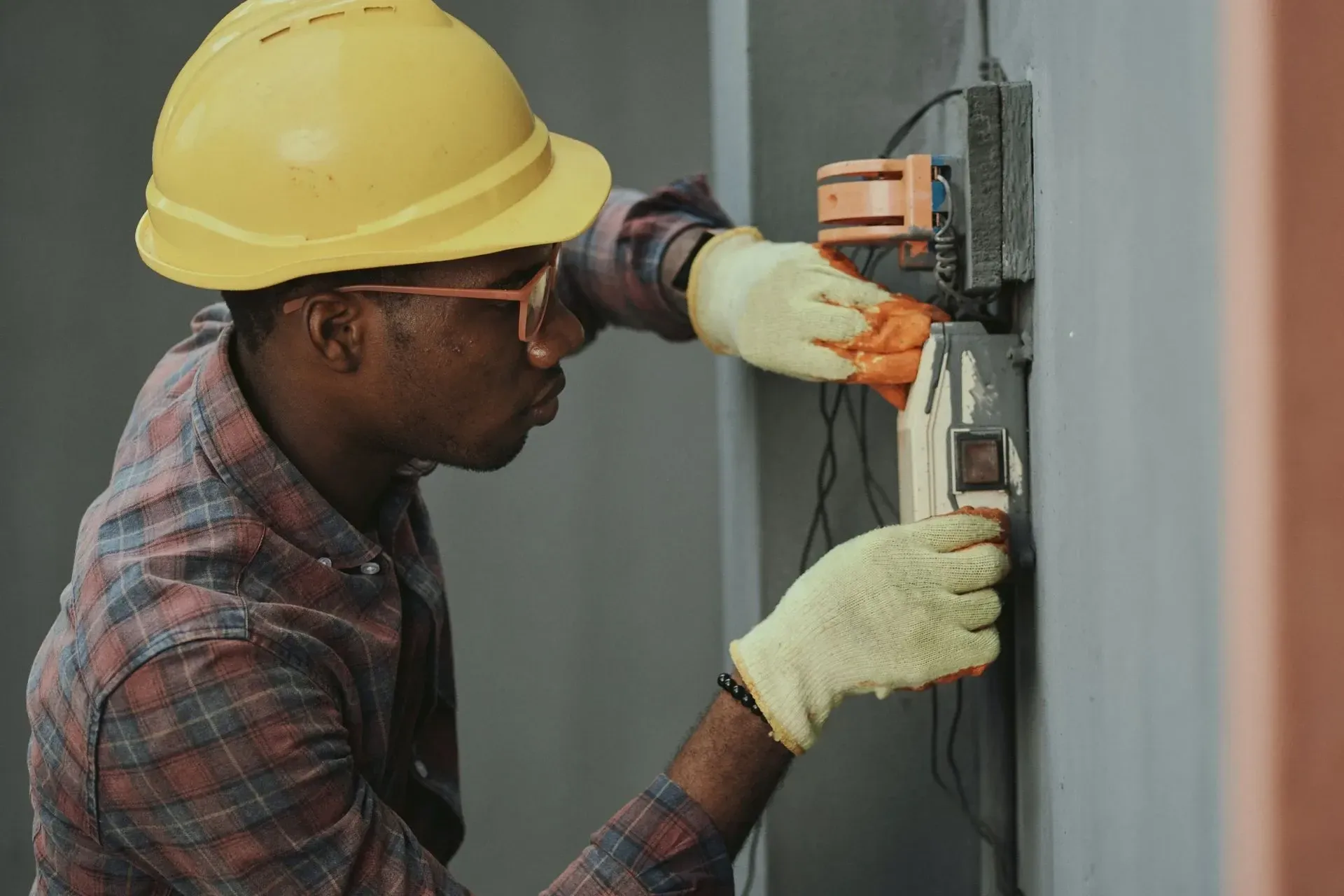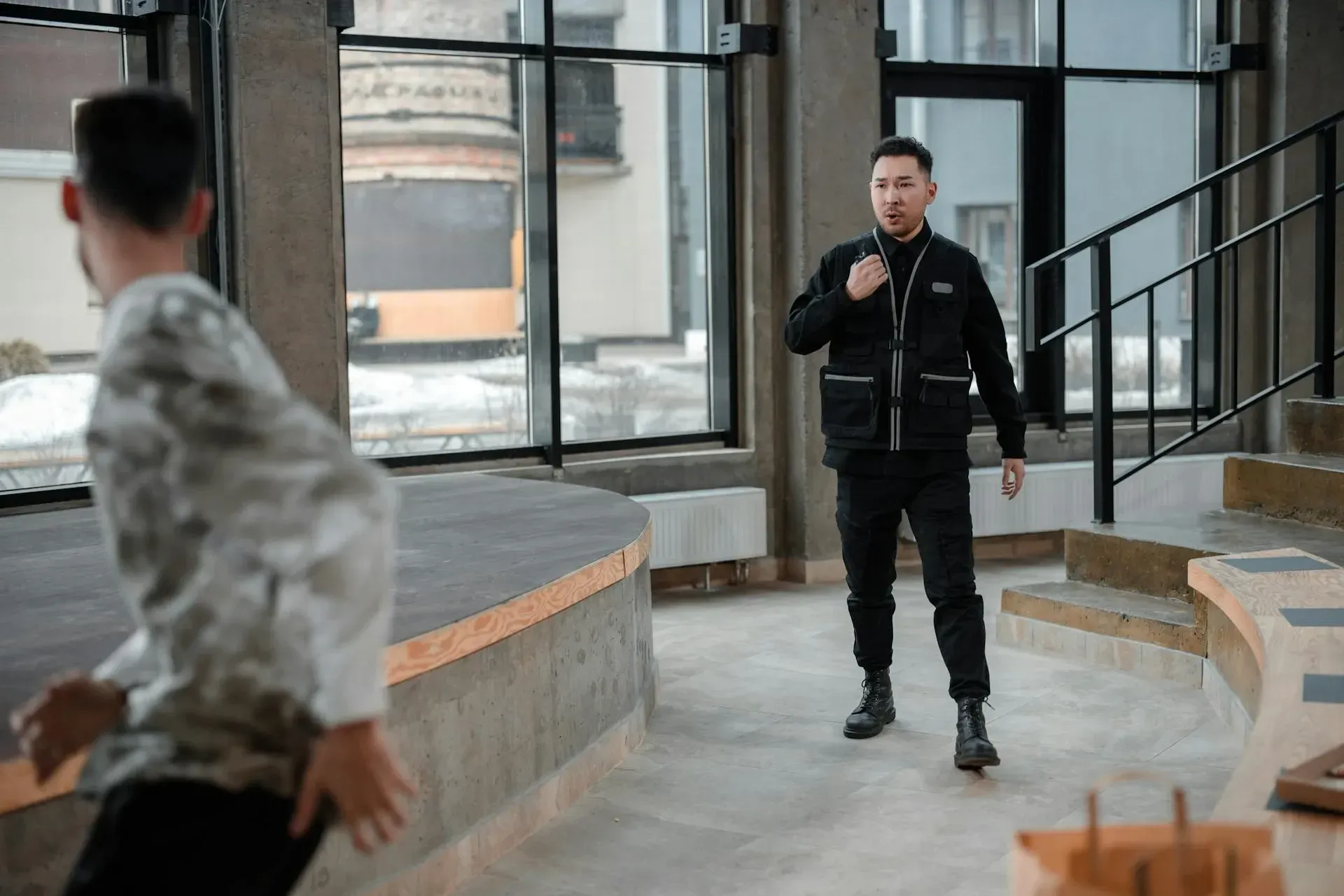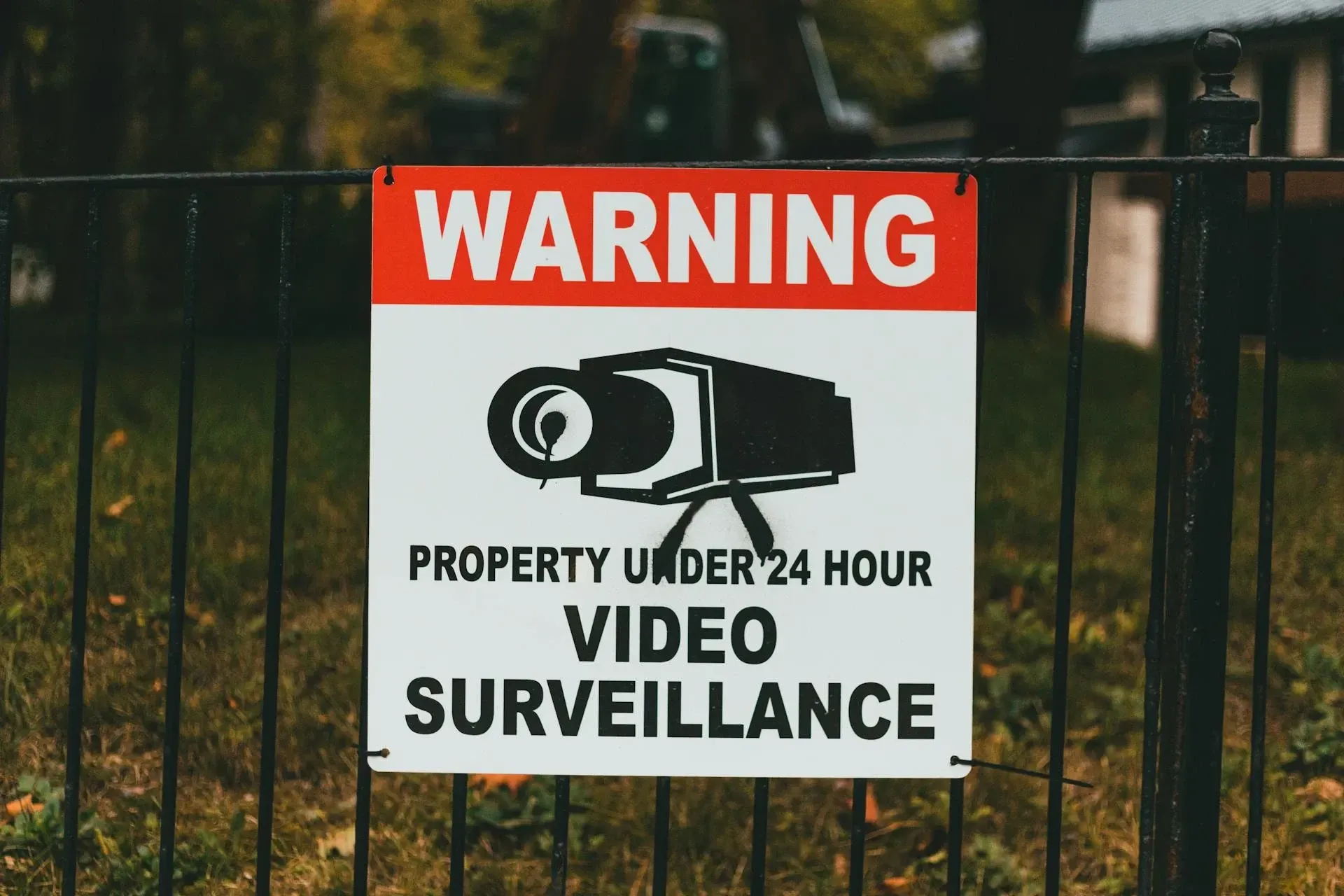Why You Need an Electrician for Home Security Installation
You need an electrical technician for hardwired home security installations because these systems need stable, code-compliant power. Simple plug-ins won’t be enough. A licensed electrician delivers safe circuit load planning, proper grounding, and professional wire routing.
If you know how to install security camera wiring, would you still need an electrician for your home security system? In many cases, yes. While wireless and plug-and-play security cameras are easy to set up,
hardwired systems need proper circuit load planning. Otherwise, you’ll risk overloading your system, causing serious safety hazards.
So step back before you break out the drill and start routing cables. In some cases, hiring a licensed electrician is smarter, safer, and more efficient.
1. No Existing Doorbell Wiring or Power Source
Hardwired video doorbells rely on an existing low-voltage system to run and trigger the indoor chime. But not all houses are pre-wired for this setup.
Many older (and even newly renovated) properties lack a transformer, chime box, or wiring. Without them, your
doorbell security camera won’t get the 16 to 24V it needs to function.
An electrician must run low-voltage wiring, install a compatible transformer at the breaker panel, and mount the chime to provide power to a hardwired unit from scratch. The process may require drilling holes and attaching a wall plate through brick walls, siding, or tight attic spaces.
2. No Outdoor Electrical Outlets
Outdoor security cameras and floodlights typically need a nearby GFCI-protected outlet for safe power transmission. You'll need an electrician if your outlets are missing, damaged, or not code-compliant.
They’ll have to
install a new weatherproof outlet by tapping into your home’s interior wiring for power transmission. You can’t DIY security camera wiring installation. For weatherproofing, a professional has to route power safely, protect the circuit with a GFCI breaker, and seal all components against moisture.

3. Breaker Panel Integration
Many hardwired alarm panels and analogue security cameras need a dedicated circuit to maintain stable power. It’s especially crucial if you’re supporting several wired devices with one multiple-output power supply. Without proper load planning, your systems will trip breakers and fail during outages.
A licensed electrician must install the correct circuit and power cable to integrate your security setup into the breaker panel safely. They’ll also choose the right security camera wire types for compatibility and performance.
Note: Don’t attempt to break panel integration yourself. The
Electrical Safety Authority strictly prohibits unlicensed work.
4. Running New Wiring Safely
Hardwired security systems, especially analogue setups, typically require extensive wiring through walls, basements, attics, or even behind exterior siding. However, the process isn’t as simple as threading security camera cables from points A to B. You’ll have to avoid damaging insulation, joists, or fire-blocks, and route the wires cleanly without violating the electrical code.
A licensed electrician knows how to handle wiring cameras around structural obstacles and keep connections secure. They’ll help you
build a stable, grounded power supply.
5. Grounding and Surge Protection
Grounding provides a safe path for stray electrical current to return to the earth. Without it, your security system, such as alarm panels or hardwired NVRs, may become unstable. They can experience power instability, data loss, or even a fire risk during surges.
The big issue is that many older homes weren’t built with grounding conductors. Simply replacing an outlet or two won’t fix this gap.
An electrician would have run eight insulated copper wires back to the panel or grounding electrode to
achieve proper grounding. Only a professional can assess grounding integrity, retrofit the necessary wiring, and install grounded outlets where needed.

FAQs About Home Security Camera Installation
What is the best way to run security camera wires?
To reduce signal interference, avoid running cables parallel to high-voltage lines when running cables for security camera systems. Instead, use low-voltage cabling and plan indoor-to-outdoor cabling.
Most wired security cameras run on 12V DC or PoE (Power over Ethernet), so Cat5e/Cat6 for PoE or 18/2 cables for analogue cameras are standard. Likewise, wires usually run through walls, attics, crawlspaces, or conduits for protection.
Can I install wired security cameras myself?
Technically, yes. Low-voltage security camera systems can be easily plugged into power outlets. However, if you need to install wired security cameras, modify your electrical panel, or add outlets, you’ll need a licensed electrician.
How much does it cost to install cameras around your house?
The cost to install wired security cameras depends on several factors, including the number of cameras required, the distance, the type of wall, the availability of attic access, and whether conduit or retrofitting is necessary.
Consumer reports show that one camera ranges from $100 to $250. Considering labour, materials, and setup, a full four-camera setup can cost around $1,000 to $2,500.
In Summary
- Hardwired security systems require stable power and safe wiring, which DIY setups often cannot guarantee.
- If you don’t have existing doorbell wiring, you’ll need an electrician to run low-voltage lines, add a transformer, and mount a chime.
- Missing outdoor outlets means you won’t be able to supply power to your cameras. A licensed pro can install weatherproof, GFCI-protected outlets.
- Breaker panel work is not DIY. Alarm panels and wired cameras may require dedicated circuits to prevent overload or failure while maintaining a stable video signal.
- You need code knowledge to run wires through walls or attics. Electricians are trained to recognize and prevent structural damage and fire risks.
- Ungrounded systems put sensitive devices at risk. Electricians can upgrade wiring and add surge protection for safer operation.
Hardwired Security Demands Hardwired Expertise
Your home security system is only as reliable as the power behind it. At PasWord Protection, we possess the skills and experience to integrate your cameras securely into your existing electrical infrastructure. Our professional installation team can handle outdoor camera wiring, alarm panel power, and home security setups with code-compliant precision.
Contact us today to
get a free quote. Don’t worry about learning how to install security camera wiring. Tell us about your ideal setup, and we’ll walk you through the safest, most reliable way to execute it.






